Embracing technology for progress
January 9, 2020 2:39 pm
Advanced industry automation, leading up to smart manufacturing and Industry 4.0 backed by Industrial IoT (IIoT), is the next big trend in industrialisation.
Abhijit Kulkarni, Regional Manager Technical, North and West Region, DesignTech Systems Pvt. Ltd. talks about the emerging technologies and solutions in the sheet metal manufacturing and metal and tooling industry.
What is going to be your focus in IMTEX 2020?
DesignTech will showcase leading technologies in the product design and development arena from world leaders such as CAD/PLM/IIoT/AR technologies from PTC, advanced product design analysis and simulation solutions, CAE solutions from Altair Engineering, 3D Printing and Additive Manufacturing technologies from Stratasys, advanced CAM solution HyperMill from OPEN MIND, and geometric dimensioning and tolerances solution from DCS. These technologies can help companies design robust and functionally superior products, establish optimised R&D workflows and processes that augment efficiency and productivity, and achieve a competitive edge.
We would focus on Augmented Reality (AR) and Industrial IoT solutions, which are the latest trends in the industry. These technologies are predicted to revolutionise the way companies communicate internally and with their external stakeholders through AR, and redefine the way factories operate and manage functions through Industrial IoT.
What kind of expertise is required to cater quality application for sheet metal forming?
Precise sheet metal forming actually determines the quality of the output or product. There are sheet metal forming analysis technologies that can help companies achieve quality output with minimum wastage. To survive in the current demanding sheet metal manufacturing market, reducing production cost by controlling the process and tool designing is essential. One of the key ways to achieve this is to reduce the scrap by improving material utilisation, as it would reduce the production cost considerably.
How is the sheet metal forming process serving the larger industries where speed and lower costs are crucial in reducing time-to-market issues?
Today, modern technologies have evolved to an extent wherein the companies engaged in metal cutting and forming applications can now ensure maximum efficiency through compressed production time, minimum costs of development, and highest accuracy in their developing metal workpieces.
Some of the modern-day tools in metal formability analysis can address the most typical and challenging work areas such as blank development, feasibility analysis, accurate die design, bending or crash forming development, and others. This can help companies save material, compress development time and expenses, while augmenting production quality. By incorporating forming analysis upfront, companies can save time and cost of tooling development. The quality of manufactured tools and parts improve as the iterative reworking gets reduced drastically.
Looking at the challenges in manufacturing, how do you see export potential for metal forming and fabrication?
Although the manufacturing industry in India, primarily the automotive industry, is experiencing a slowdown, sheet metal manufacturing and metal and tooling industry also caters to other industry segments such as heavy engineering, aerospace and defence, power and energy and many more, which are still doing relatively good. So the sheet metal industry may still do well.
OEMs are now shifting to the high-strength, lightweight material, DP grade. Indian sheet metal suppliers have developed this manufacturing capability by doing virtual simulation and tryouts to meet industry needs.
How are automation and Internet of Things (IoT) shaping the sector?
Advanced industry automation, leading up to smart manufacturing and Industry 4.0 backed by Industrial IoT (IIoT), is the next big trend in industrialisation. Advanced automation of systems and processes ensures that the operations and workings on the factory floor are carried out with minimum human intervention.
Human involvement would be limited to defining the preset protocols or logics, within which the machines have the flexibility to make adjustments, corrections or troubleshoot themselves to carry out the operations. This is smart manufacturing.
In the days to come, the metal and tooling industry too would be automated and digitalised in keeping with the trend of smart manufacturing. It will ensure strict conformance to quality, processes, and throughput, enhancing the overall quality of output and productivity as well.
Abhijit Kulkarni, Regional Manager Technical, North and West Region, DesignTech Systems Pvt. Ltd.
Cookie Consent
We use cookies to personalize your experience. By continuing to visit this website you agree to our Terms & Conditions, Privacy Policy and Cookie Policy.



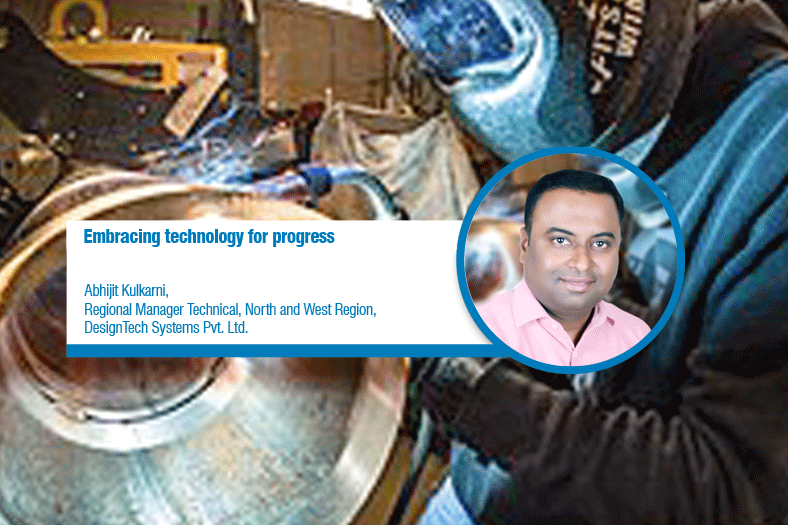

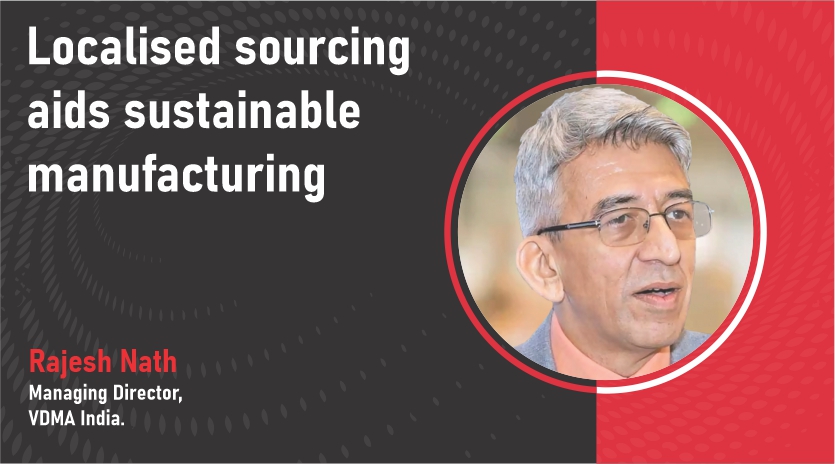


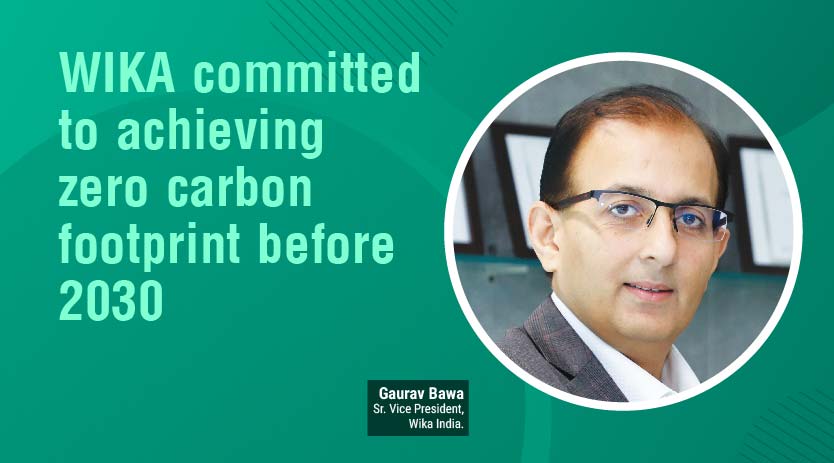
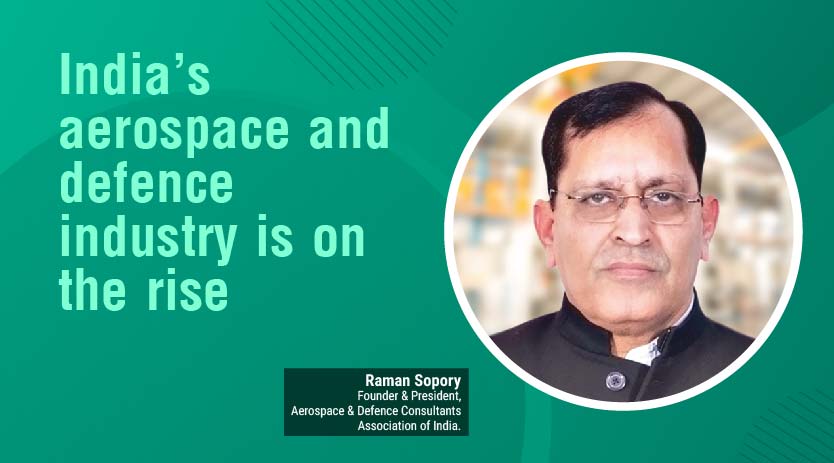

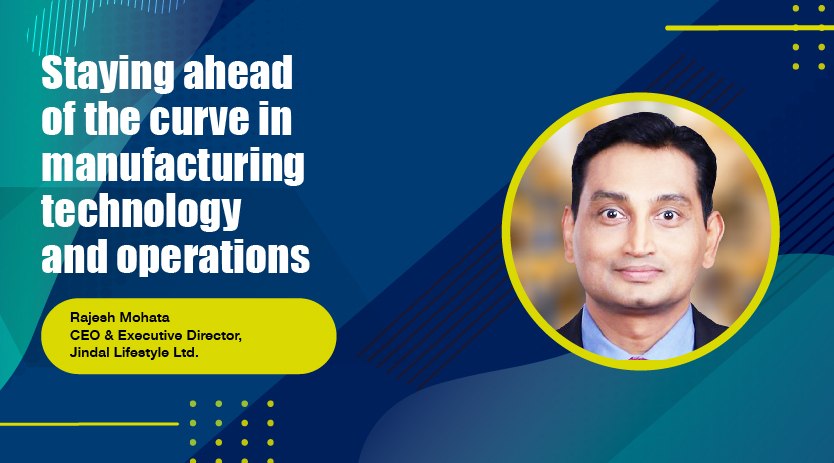
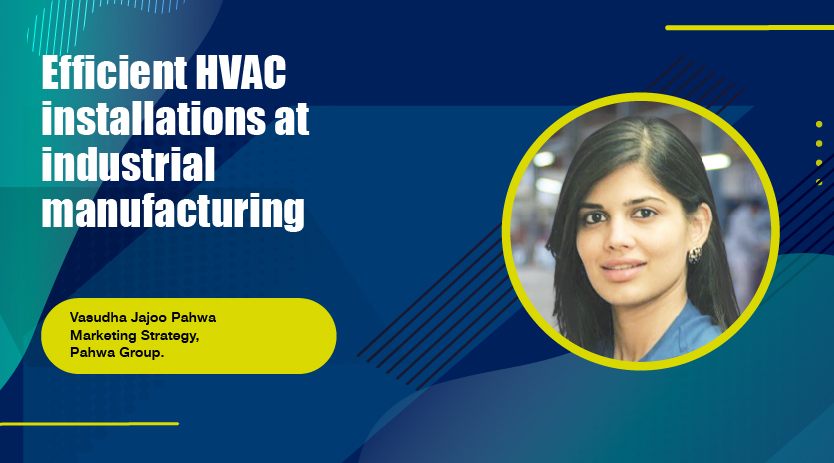




 English
English Hindi
Hindi